This post is all about the Miracles of Jesus. The Holy Land is where Jesus amazed the crowdsd with his miracles. In fact 37 of them. But when we say the ‘Miracles of Jesus’ what do we mean? The majority are faith healings; exorcisms; resurrection; control over nature, and forgiveness of sins.
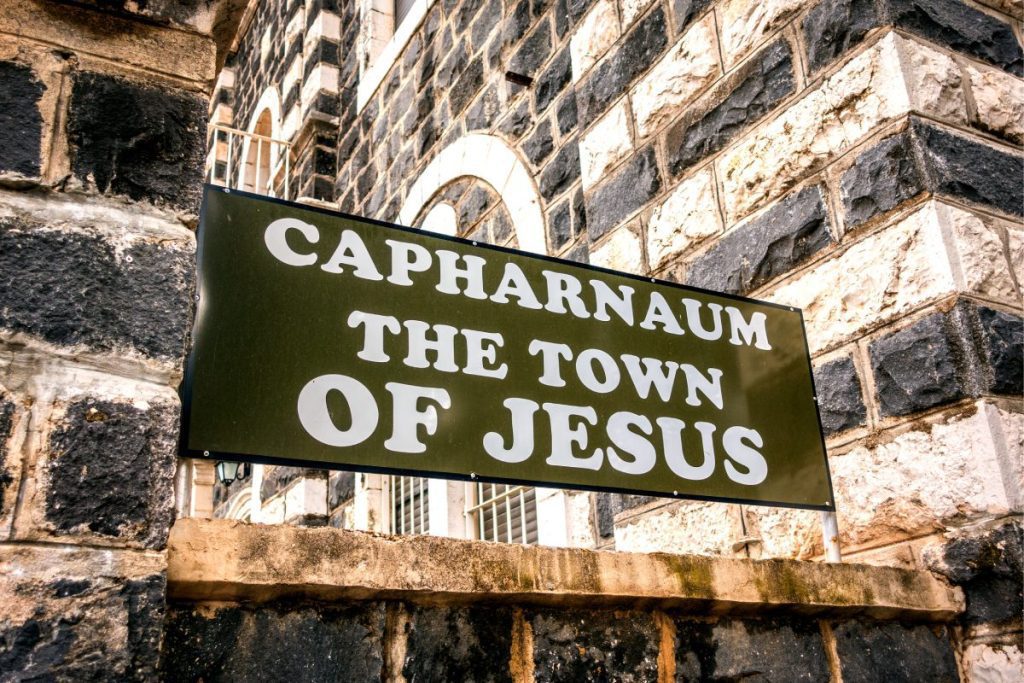
On one hand in the Synoptic Gospels (Mark, Matthew, and Luke); Jesus refuses to give a miraculous sign to prove his authority. But in the Gospel of John, Jesus is said to have performed seven miraculous signs that characterize his ministry from changing water into wine at the start of his ministry to raising Lazarus from the dead at the end. For many Christians and Muslims, the miracles are actual historical events. Others, including many liberal Christians, consider these stories to be metaphorical.
The Miracles of Jesus
In The Miracles of Jesus, two main categories of miracles are attributed to Jesus. First, those that affected people, for example, the Blind Man of Bethsaida. Those are called “healings”. Second, those that “controlled nature” like Jesus Walking on Water.
But even the healings can be divided into three types: The first could be called cures, where an ailment is cured. Another is exorcisms, where demons are cast away. Lastly is the resurrection of the dead. On that note, the Transfiguration of Jesus is unique in that the miracle happens to Jesus himself.
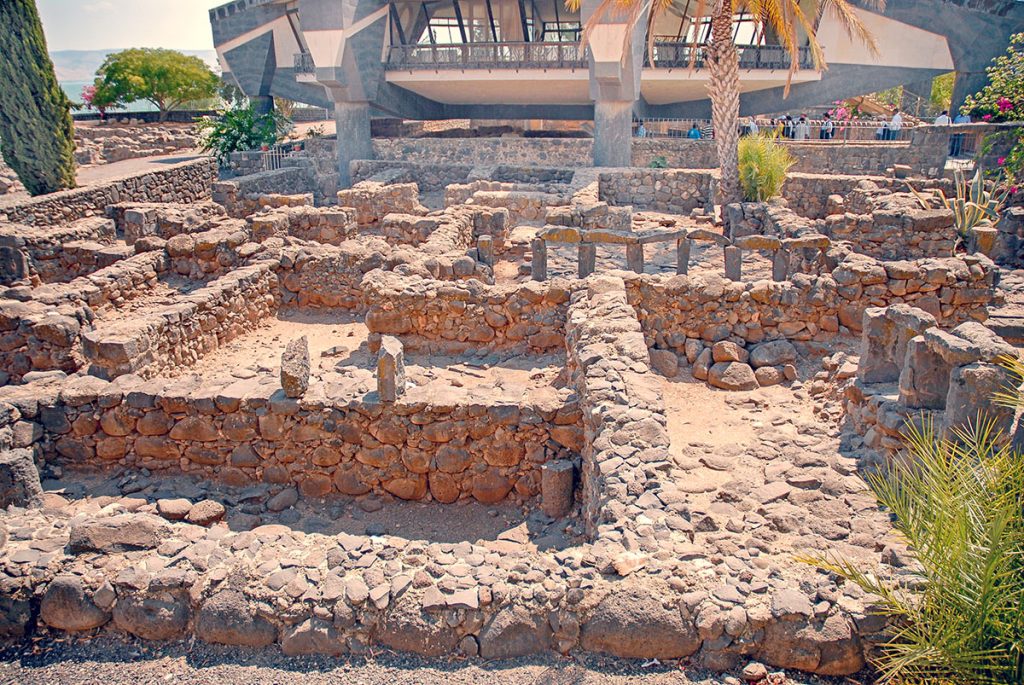
I guess one trait all miracles of Jesus have in common in the Gospel is that he gave benefits freely and never requested or accepted any form of payment for his healing miracles. Unlike the high priests of Jesus’ time who charged those healed. In fact, in Matthew, Jesus says to his disciples to heal the sick without payment and declares:
“freely ye received, freely give.”
Matthew 10:8
It is unclear when two reported miracles refer to the same event. For example, in The Healing, the Centurion’s servant, the Gospels of Matthew [8:5-13] and Luke [7:1-10] narrate how Jesus healed the servant of a Roman Centurion in Capernaum at a distance. The Gospel of John [4:46-54] has a similar but slightly different account at Capernaum and states that it was the son of a royal official who was cured at a distance.
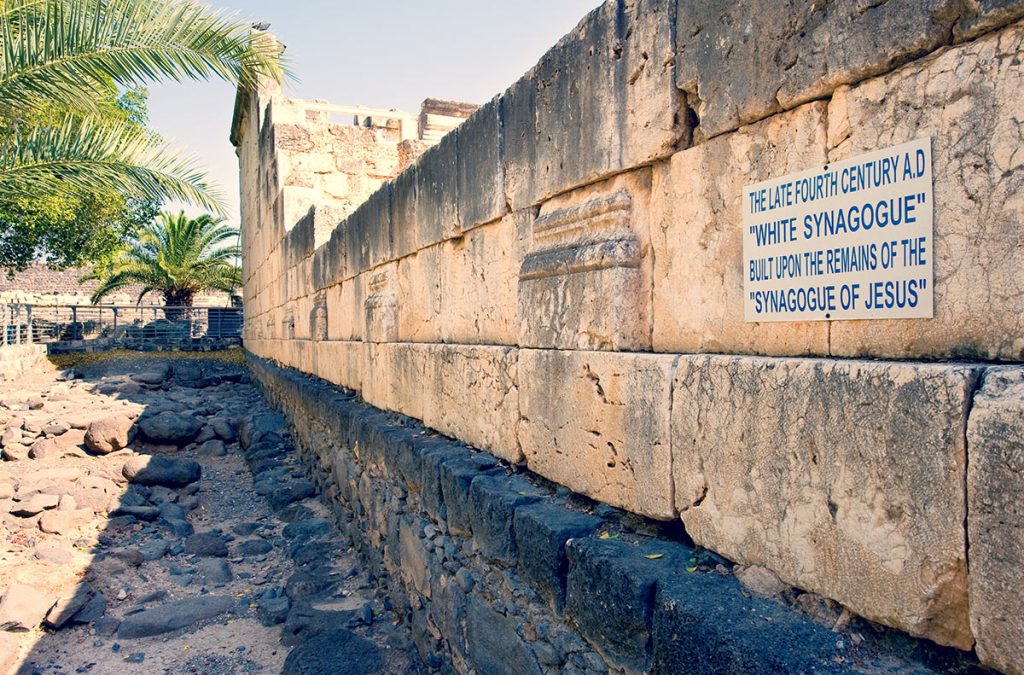
The Miracles of Jesus: Cures
The largest group of miracles mentioned in the New Testament involves cures. The Gospels give varying amounts of detail for each episode; sometimes Jesus cures simply by saying a few words, at other times, he employs material such as spit and mud. Generally, they are referred to in the Synoptic Gospels but not in the Gospel of John.
The Miracles of Jesus: Blind People
So the canonical Gospels tell a number of stories of Jesus healing blind people. The earliest is a story of the healing of a blind man in Bethsaida in the Gospel of Mark.
Mark’s Gospel also accounts for the healing of Bartimaeus; done as Jesus is leaving Jericho. The Gospel of Matthew has a simpler account loosely based on this, with two unnamed blind men instead of one and a slightly different version of the story, taking place in Galilee, earlier in the narrative. The Gospel of Luke tells the same story of Jesus healing an unnamed blind man but moves the event in the narrative to when Jesus approaches Jericho.
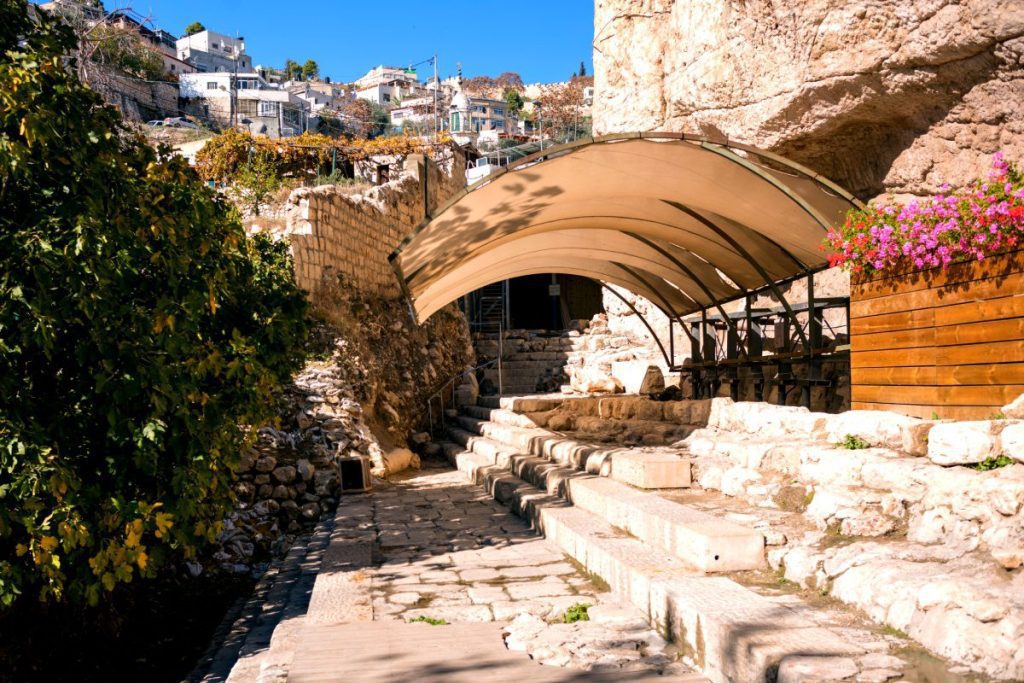
The Gospel of John describes an episode in which Jesus heals a man blind from birth, placed during the Festival of Tabernacles, about six months before his crucifixion. Jesus mixes spittle with dirt to make a mud mixture, which he then places on the man’s eyes. He instructs the man to wash his eyes in the Pool of Siloam. When the man does this, he is able to see. When asked by his disciples whether the cause of the blindness was the sins of the man’s father or his mother, Jesus states that it was neither.
The Miracles of Jesus: Lepers
A story in which Jesus cures a leper appears in all three synoptic gospels. Having cured the man, he instructed him to offer the requisite ritual sacrifices as prescribed by the Deuteronomic Code and Priestly Code and not to tell anyone who had healed him, but the man disobeyed, increasing Jesus’ fame. After that Jesus withdrew to deserted places but was followed there.
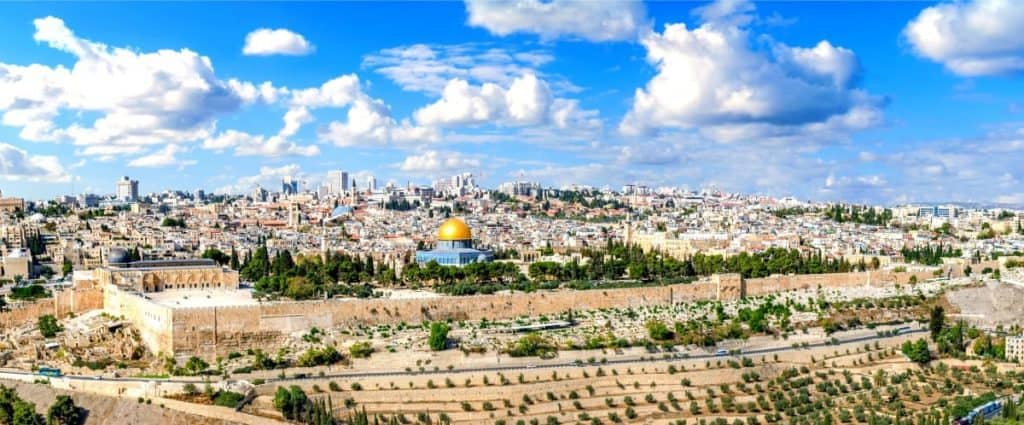
In an episode in the Gospel of Luke, while on his way to Jerusalem; Jesus sends ten lepers who sought his assistance to the priests; and they were healed as they go. But the only one who comes back to thank Jesus is a Samaritan.
The Miracles of Jesus: Paralytics
Healing the paralytic at Capernaum appears in Matthew, Mark, and Luke. Moreover, the Synoptics state that a paralytic was brought to Jesus on a mat; Jesus told him to get up and walk, and the man did so. Jesus also told the man that his sins were forgiven, which irritated the Pharisees.
Jesus is described as responding to the anger by asking whether it is easier to say that someone’s sins are forgiven or to tell the man to get up and walk. Mark and Luke state that Jesus was in a house at the time and that the man had to be lowered through the roof by his friends due to the crowds blocking the door.
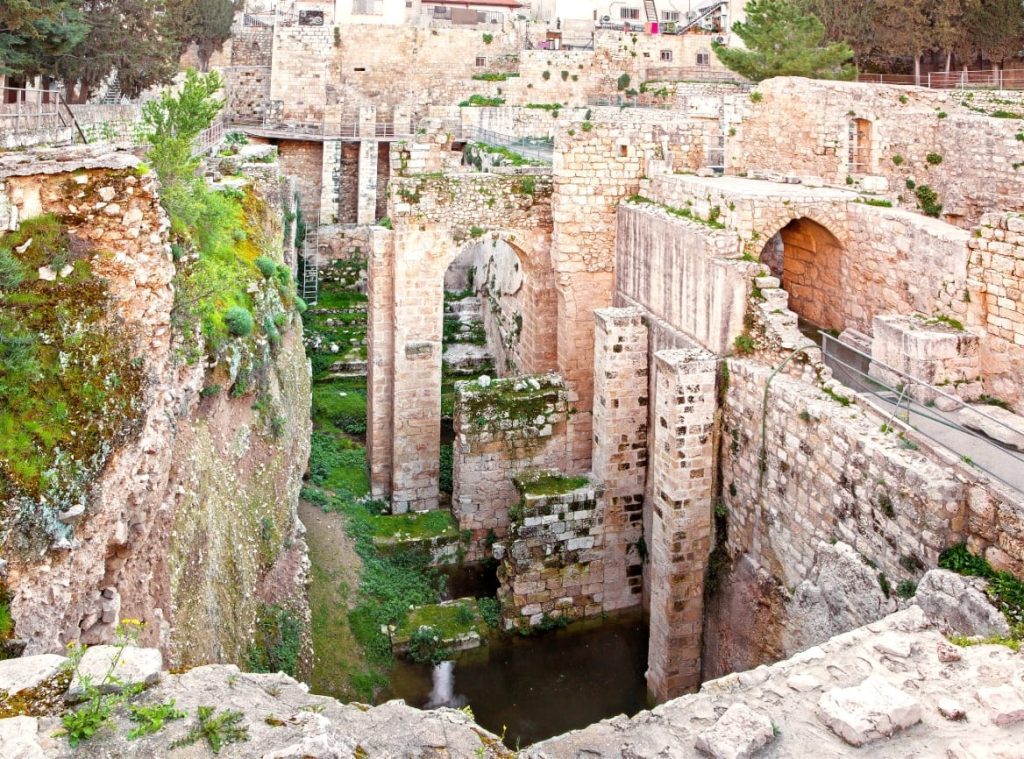
A similar cure is described in the Gospel of John as the Healing the paralytic at Bethesda and occurs at the Pool of Bethesda. In this cure, Jesus also tells the man to take his mat and walk.
The Miracles of Jesus: Women
The Cure of a Bleeding Woman miracle appears in Mark 5, Matthew 9, and Luke 8, along with the miracle of the Daughter of Jairus. The Gospels state that while heading to Jairus’ house, Jesus was approached by a woman who had been bleeding for 12 years and that she touched Jesus’ cloak (fringes of his garment) and was instantly healed. Jesus turned about and, when the woman came forward, said, “Daughter, your faith has healed you, go in peace”.
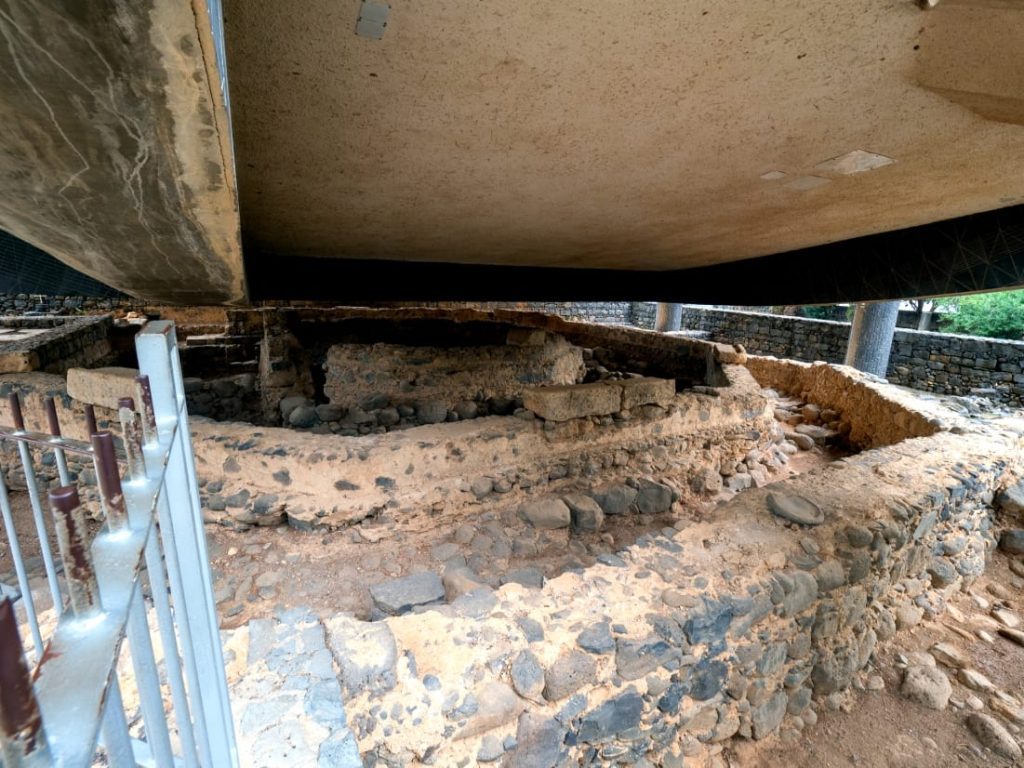
He is healing the mother of Peter’s wife. The Synoptics describe Jesus as healing the mother-in-law of Simon Peter when he visited Simon’s house in Capernaum, around the time of Jesus recruiting Simon as an Apostle (Mark has it just after the calling of Simon, while Luke has it just before). The Synoptics imply that this led other people to seek out Jesus.
Jesus healing an infirm woman appears in Luke 13:10-17. While teaching in a synagogue on the Sabbath, Jesus cured a woman crippled by a spirit for eighteen years and could not stand straight at all.
The Miracles of Jesus: Men
Healing a man with dropsy is described in Luke 14:1-6. In this miracle, Jesus cured a man with dropsy at the house of a prominent Pharisee on the Sabbath. Jesus justified the cure by asking: “If one of you has a child or an ox that falls into a well on the Sabbath day, will you not immediately pull it out?”

In the Healing of the man with a withered hand miracle, the Synoptics state that Jesus entered a synagogue on Sabbath, and found a man with a withered hand there, whom Jesus healed, having first challenged the people present to decide what was lawful for Sabbath—to do good or to do evil, to save life or to kill. The Gospel of Mark adds that this angered the Pharisees so much that they contemplated killing Jesus.
The Healing of the deaf-mute of the Decapolis miracle only appears in the Gospel of Mark.[7:31-37] The Gospel states that Jesus went to the Decapolis and met a man who was deaf and mute and cured him. Specifically, Jesus first touched the man’s ears and touched his tongue after spitting, and then said Ephphatha!, an Aramaic word meaning Be opened.
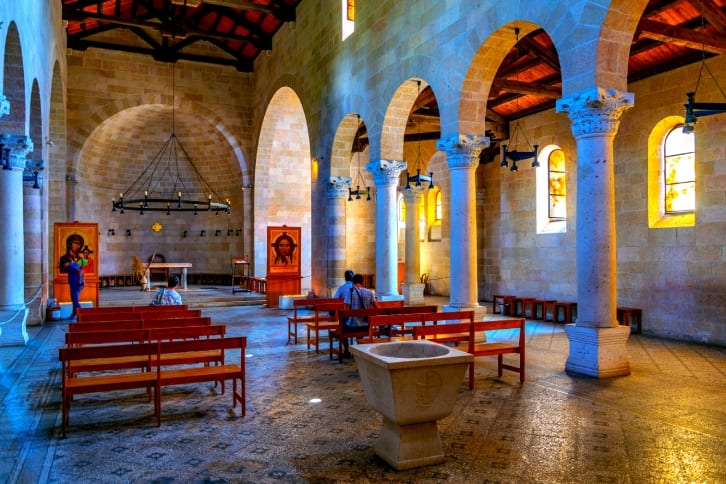
The Healing of Malchus was Christ’s final miracle before his resurrection. Simon Peter had cut off the ear of the High Priest’s servant, Malchus, during the scene in the Garden of Gethsemane. Jesus restored the ear by touching it with his hand.
The Miracles of Jesus: Others
The Healing of the Centurion’s servant miracle is reported in Matthew 8:5-13 and Luke 7:1-10. These two Gospels narrate how Jesus healed the servant of a Roman Centurion in Capernaum. John 4:46-54 has a similar account at Capernaum but states that a royal official’s son was cured at a distance.
Jesus’ healing in the land of Gennesaret appears in Matthew 14:34-36 and Mark 6:53-56. As Jesus passes through Gennesaret, all those who touch his cloak are healed.
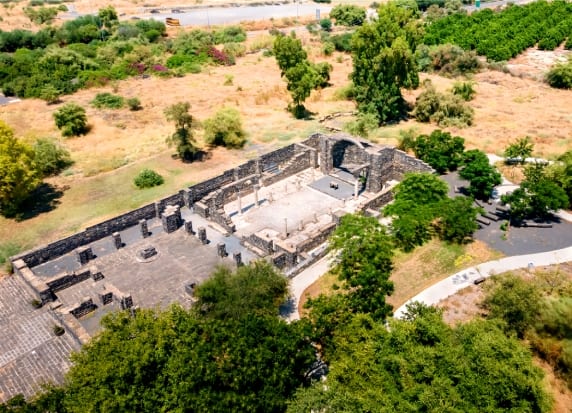
Matthew 9:35-36 also reports that after the miracle of Jesus exorcising a mute, “Jesus went about all the cities and villages, teaching in their synagogues, and proclaiming the good news of the kingdom, and curing every disease and every sickness.” Other gospels also report Jesus doing cures that are not specifically written down. For instance, the Gospel of John states in closing, John 21:25, “there are also many other things that Jesus did; if every one of them were written down, I suppose that the world itself could not contain the books that would be written.”
The Miracles of Jesus: Exorcisms
According to the three Synoptic Gospels, Jesus performed many exorcisms of demoniacs. These incidents are not mentioned in the Gospel of John and appear to have been excluded due to theological considerations.
The seven major exorcism accounts in the Synoptic Gospels, which have details and imply specific teachings, are:
Jesus Exorcises an Evil Spirit in Capernaum
Exorcism at the Synagogue in Capernaum, where Jesus exorcises an evil spirit who cries out, “What do you want with us, Jesus of Nazareth? Have you come to destroy us? I know who you are—the Holy One of God!”.
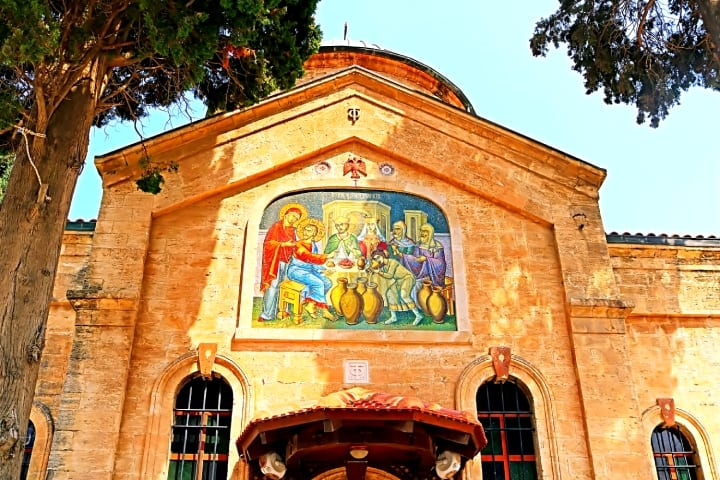
Miracle of the (Gadarene) Swine
Exorcism of the Gerasene demoniac or “Miracle of the (Gadarene) Swine”: Jesus exorcises a possessed man (changed in the Gospel of Matthew to two men). When Jesus asks the demon’s name (finding the name of the possessing demon was an important traditional tool of exorcists), he is given the reply Legion, “…for we are many”. When the demons asked to be expelled into a nearby group of pigs rather than be sent out of the area, Jesus obliges, but the pigs then run into the lake and are drowned.
Exorcism of the Syrophoenician Woman’s Daughter
The exorcism of the Syrophoenician woman’s daughter appears in Matthew 15:21-28 and Mark 7:24-30. A Gentile woman asks Jesus to heal her daughter, but Jesus refuses, saying he has been sent only to “the lost sheep of the house of Israel.” The woman persists, saying that “dogs eat of the crumbs which fall from their masters’ table.” In response, Jesus relents and informs her that her daughter has been healed.
Exorcising the blind and mute man appears in Matthew 12:22-32, Mark 3:20-30, and Luke 11:14-23. Jesus heals a demon-possessed man who is blind and mute. People wonder, “Could this be the Son of David?”
Exorcising a Boy Possessed by a Demon
Exorcising a boy possessed by a demon appears in Matthew 17:14-21, Mark 9:14-29, and Luke 9:37-49. A boy possessed by a demon is brought forward to Jesus. The boy is said to have foamed at the mouth, gnashed his teeth, become rigid, and involuntarily fallen into both water and fire. Jesus’ followers could not expel the demon, and Jesus condemned the people as unbelieving, but when the father of the boy questions if Jesus could heal the boy, he replies “Everything is possible for those that believe”. The father then says that he believes, and the child is healed.
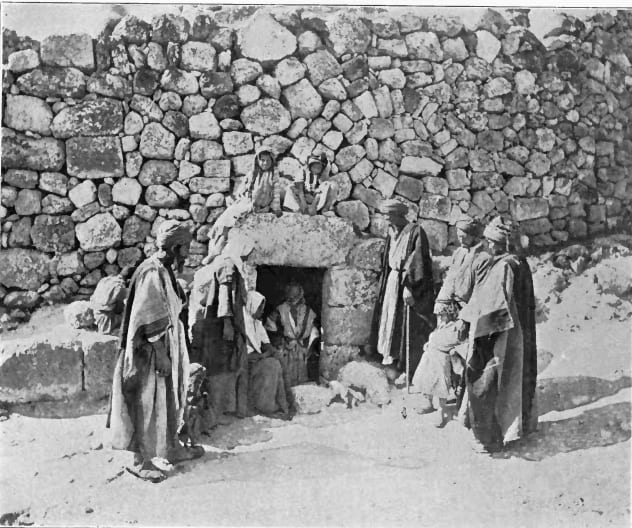
The miracle of Jesus exorcising at sunset appears in the Synoptic Gospels just after healing the mother of Peter’s wife, in Matthew 8:16-17, Mark 1:32-34, and Luke 4:40-41. In this miracle, Jesus heals people and casts out demons.
The Miracle of Jesus Exorcising a Mute
The miracle of Jesus exorcising a mute appears in Matthew 9:32-34 immediately following the account of the miracle of Jesus healing two blind men. A demon-possessed man who cannot talk is brought to Jesus, who exorcises the demon, and the man can speak.
There are also brief mentions of other exorcisms: For example, Jesus had cast seven devils out of Mary Magdalene. (Mark 16:9, Luke 8:2). Jesus continued to cast out devils even though Herod Antipas wanted to kill him. (Luke 13:31-32)
The Miracles of Jesus: Raising the Dead
All four canonical gospels describe the resurrection of Jesus; three of them also relate a separate occasion on which Jesus calls a dead person back to life. Jairus, a major synagogue patron, asks Jesus to heal his daughter, but while Jesus is on the way, Jairus is told his daughter has died. Jesus tells him she was only sleeping and wakes her with Talitha kumi! We hear about A young man, the son of a widow, is brought out for burial in Nain. Jesus sees her, and his pity causes him to tell her not to cry. Jesus approaches the coffin and tells the man inside to get up, and he does so. A close friend of Jesus who had been dead for four days is brought back to life when Jesus commands him to get up.
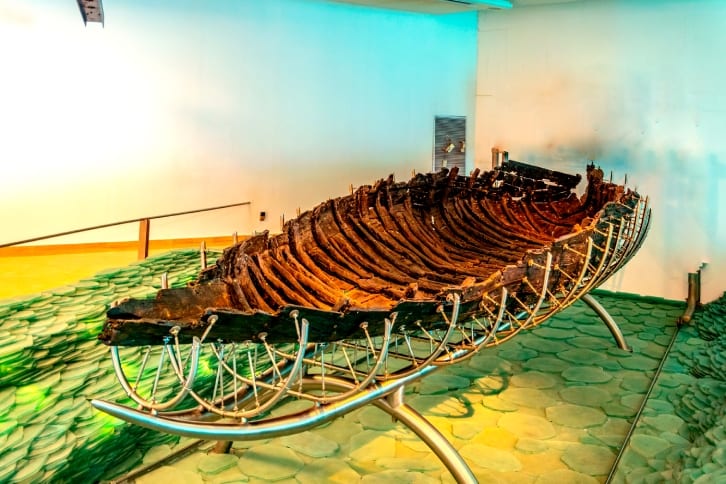
The Miracles of Jesus: Control Over Nature
The Gospels include eight pre-resurrection accounts concerning Jesus’ power over nature:
- Turning water into wine at a wedding, when the host runs out of wine, the host’s servants fill vessels with water at Jesus’ command, then a sample is drawn out and taken to the master of the banquet who pronounces the content of the vessels as the best wine of the banquet.
- The miraculous fish catch occurs early in Jesus’s ministry and results in Saint Peter, James, son of Zebedee, and John the Apostle joining Jesus as his apostles.[Lk 5:1-11]
- Feeding the multitude – Jesus, praying to God and using only a few loaves of bread and several fish, feeds thousands of men, along with an unspecified number of women and children; there are even several baskets of leftovers afterward.
- Walking on water – Jesus gets out of a boat and walks on water.
- Calming the storm – during a storm, the disciples woke Jesus, and he rebuked the storm causing it to become calm. Jesus then rebukes the disciples for lack of faith.
- Finding a coin in the fish’s mouth is reported in Matthew 17:24-27.
- Cursing the fig tree – Jesus cursed a fig tree, and it withered.
Post-resurrection miracles attributed to Jesus are also recorded in the Gospels:
A miracle similar to the miraculous catch of fish, also called the catch of 153 fish to distinguish it from the account in Luke, is reported in the Gospel of John but takes place after the Resurrection of Jesus.

